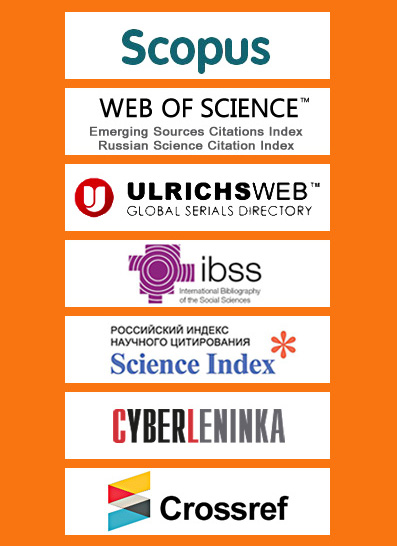Образовательная стигматизация как социальный феномен: социологический анализ
Аннотация
Образовательная стигматизация – один из актуальных и вместе с тем недостаточно разработанных вопросов социологии образования. В статье предпринята попытка ее теоретического и эмпирического изучения в контексте современных проблем российского образования – усиления неравенства, образовательной неуспешности, дегуманизации образовательных отношений. Базируясь на ключевых идеях теории И. Гоффмана, авторы определяют образовательную стигму как отрицательное отношение к субъектам обучения (индивидам, группам, организациям), чья образовательная деятельность маркируется социальным окружением (или самим субъектом обучения) как несоответствующая его представлениям о «нормальности»; также авторы разрабатывают уровневый подход к ее изучению. Цель статьи заключается в социологическом анализе образовательной стигматизации как феномена современного российского образования. Эмпирическая база статьи – данные глубинных интервью с учителями, родителями школьников и студентов; материалы фокус-групп со школьниками и студентами университетов; анализ контента родительских социальных сетей. Авторы выделили принципы социологического подхода, обосновывающие необходимость рассмотрения социального контекста образовательной стигматизации и применения уровневого подхода к ее исследованию. Реализация данных принципов позволила определить особенности и механизмы стигматизации образовательной неуспешности на индивидуально-личностном, организационном и институциональном уровнях. В статье показано, как у учащихся на индивидуально-личностном уровне формируются поведенческие стратегии, направленные как на преодоление стигматизирующей ситуации, так и на понижающую адаптацию к ней. Особое внимание уделяется раскрытию содержания множественных ролей учителей, психологов, родителей в ситуации образовательной стигматизации, выступающих в одних случаях в качестве стигматизирующих или соучаствующих агентов, в других ситуациях – выполняющих роли сочувствующих и поддерживающих субъектов. Важным результатом исследования является характеристика механизмов образовательной стигматизации, действующих на общностно-групповом уровне в отношении групп или классов неуспешных школьников. В связи с этим рассмотрены групповые стратегии поведения стигматизированных – получение «вторичной выгоды», имитация академической успешности, «уход». Подчеркивается острота проблемы институциональной стигмы, возникающей в отношении «неэффективных» образовательных организаций, включая школы и вузы.






